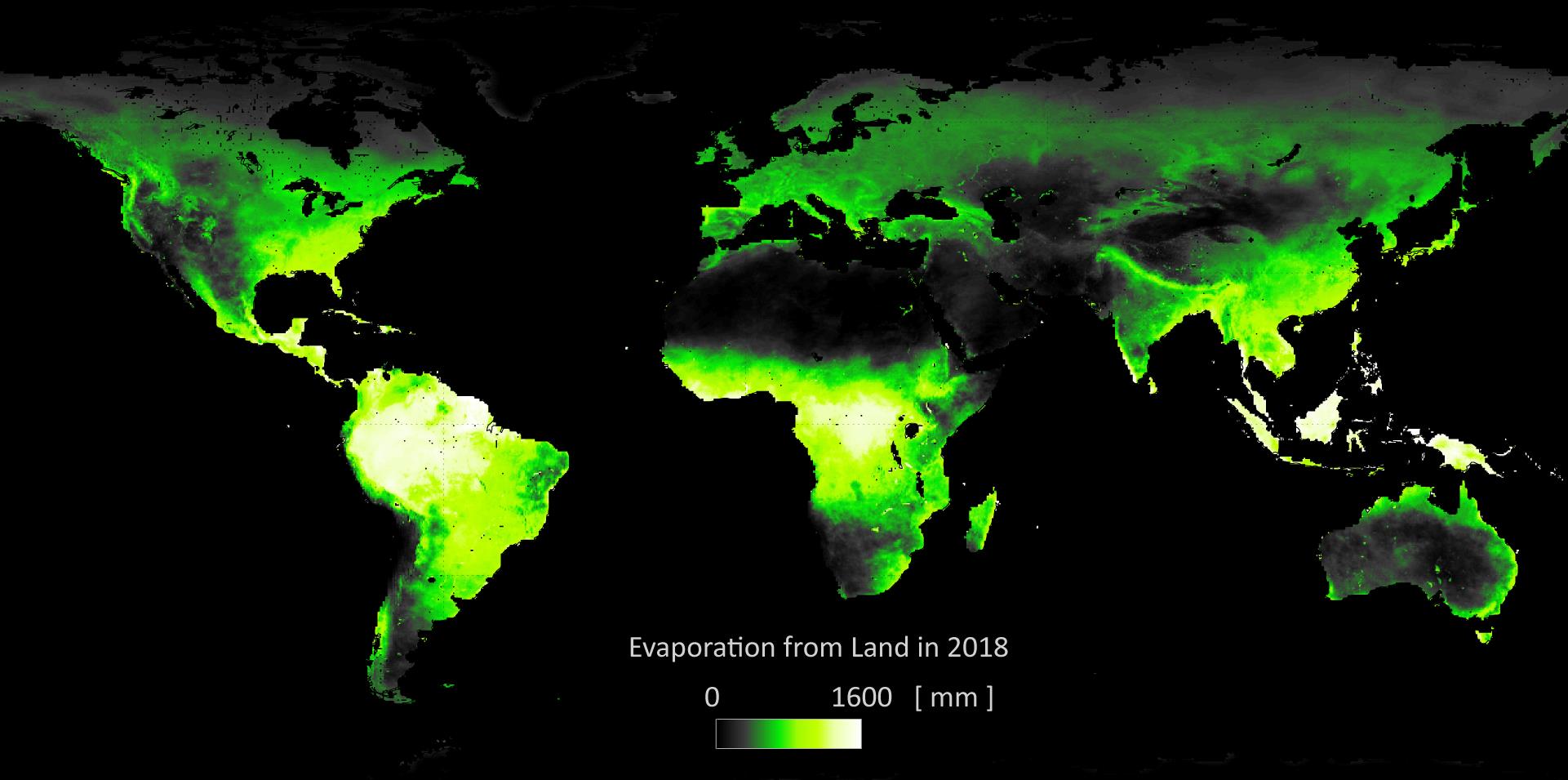Evaporation from Land


Evaporation from Land
Figure: Global Map of Evaporation from Land in 2018. Source: The figure is based on data from the Global Land Evaporation Amsterdam Model (GLEAM)(https://www.gleam.eu/#datasets). |
ECV Products and Requirements
These products and requirements reflect the Implementation Plan 2022 (GCOS-244).
| Products | Sensible Heat Flux | Latent Heat Flux | Bare Soil Evaporation | Interception Loss | Transpiration | ||
| (*) | Unit | Values | Values | Values | Values | Values | |
| Horizontal Resolution | G | km | 1 | 0.1 | 0.1 | 0.1 | 0.1 |
| B | – | 1 | 1 | 1 | 1 | ||
| T | 25 | 25 | 25 | 25 | 25 | ||
| Vertical Resolution | G | - | - | - | - | - | |
| B | - | - | - | - | - | ||
| T | - | - | - | - | - | ||
| Temporal Resolution | G | h | 1 | 1 | 1 | 1 | 1 |
| B | - | 6 | 6 | 6 | 6 | ||
| T | 24 | 24 | 24 | 24 | 24 | ||
| Timeliness | G | d | 1 | 1 | 1 | 1 | 1 |
| B | 30 | 30 | 30 | 30 | 30 | ||
| T | 365 | 365 | 365 | 365 | 365 | ||
| Required Measurement Uncertainty (2-sigma) | G | % | 10 | 10 | 20 | 20 | 20 |
| B | 20 | 20 | 30 | 30 | 40 | ||
| T | 40 | 40 | 50 | 50 | 50 | ||
| Stability | G | W m-2 y-1 | 0.015 | 0.015 | 0.015 | 0.015 | 0.015 |
| B | - | - | – | – | – | ||
| T | 0.03 | 0.03 | 0.03 | 0.03 | 0.03 | ||
The requirements are found in the complete 2022 ECVs Requirements document as well: ECV Evaporation from Land.(*) Goal (G): an ideal requirement above which further improvements are not necessary. Breakthrough (B): an intermediate level between threshold and goal which, if achieved, would result in a significant improvement for the targeted application. The breakthrough value may also indicate the level at which specified uses within climate monitoring become possible. It may be appropriate to have different breakthrough values for different uses. Threshold (T): the minimum requirement to be met to ensure that data are useful.
Data sources
This list provides sources for openly accessible data sets with worldwide coverage for which metadata is available. It is curated by the respective GCOS ECV Steward(s). The list does not claim to be complete. Anyone with a suitable dataset who wishes it to be added to this list should contact the abombelli wmo [dot] int (GCOS Secretariat).
wmo [dot] int (GCOS Secretariat).

